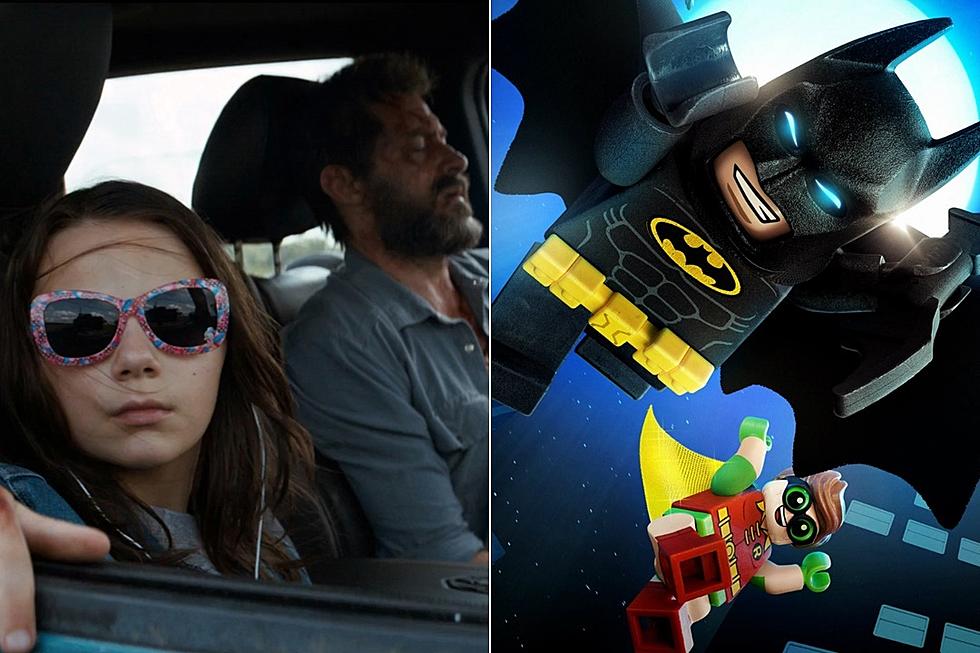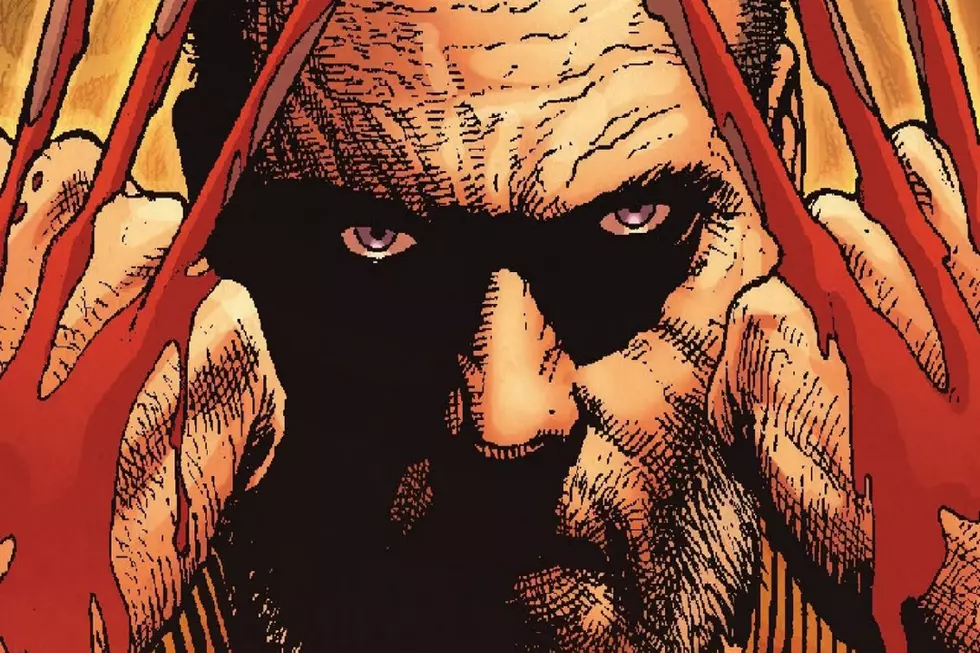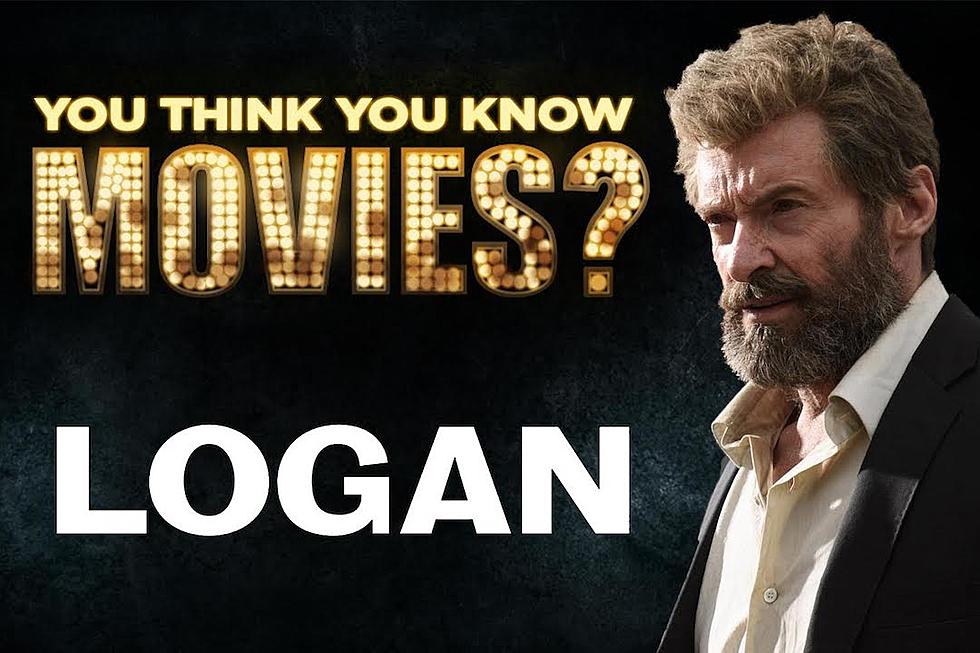
Ask Chris #181: Wolvie’s Angels
Q: What's your take on Wolverine and his many girl sidekicks? Do you think it's important for their stories, and who's best? -- @manuel_mc89
A: I think it's been well-established over my time here at ComicsAlliance that I have a whole lot of affection for the X-Men, and Wolverine in particular. I love that guy, mostly because it was basically unavoidable that I would end up becoming a fan of a dude who could punch you with knives and rode around on motorcycles and didn't play by the rules, man. I mean, I was ten years old in 1992. That I didn't also enter my teenage years as a huge fan of Cable and Shatterstar (his sword has two blades!) is basically miraculous.
Point being, Wolverine's great, and on the list of things he does that I'm always eager to see, mentoring younger characters is right up there with stabbing hundreds of ninjas. And folks, I like Wolverine stabbing ninjas a lot.
The thing about Wolverine being a mentor is that it works for all the reasons that it shouldn't work at all, and it starts with the idea that he's a loner. Well, a "loner," anyway -- we've had forty years of stories where he's been nothing but a team player, and almost two solid decades where he's been on every team in the Official Handbook of the Marvel Universe, to the point where there was an arc in Exiles about a team made up of nothing but alternate-universe Wolverines. Seriously, it is without question Tony Bedard's finest hour. That said, I don't think that really takes away from the idea of Wolverine as a guy who doesn't really get along with other people. In fact, there's a way to look at it that actually reinforces it.
If you look at his history, Wolverine is a dude who has always been attacked and exploited by outside forces. Whether it was the Canadian government turning him into a killing machine to further their own ends -- something that I assume the actual Canadian government does to its citizens all the time because comic books have never lied to me about international politics -- or Sabretooth showing up to kill his girlfriends, the people who manage to get closest to him and earn his trust always end up worse for it, whether it's in the form of betrayal or as the victims of the betrayal of others. His entire life has been shaped by that; even Professor Xavier only recruits him because he wants something out of the deal, and I'm not sure if battling Krakoa the Living Island is any more noble a goal than stab-murdering the enemies of Canada.
Point being, Wolverine is a loner by necessity, not by choice.
I think that's where the fascination with samurai comes from, as an attempt to romanticize his loneliness. Rather than see himself as a guy who always gets his current friends murdered by his former friends, he instead deals with it by fancying himself a wandering ronin* who must nobly take that burden upon himself. It's a coping mechanism that manifests itself pretty often as Wolverine's extended fetishizing of Japanese culture.
I don't think it ever actually comes up in the comics, but trust me on this one: That dude has a lot of opinions about anime.
You can see it pretty easily when he joins up way back in Giant Size X-Men #1. The X-Men have always been a team of outsiders and misfits because that's their entire metaphorical deal, but most of those characters have some kind of support system. Colossus has his family in Russia, Storm is worshiped as a Goddess, Banshee's a cop. Wolverine's nominally employed by the Government, but he has no real attachment to them. He walks out without a second thought because there's nothing keeping him there. The only other member of the "All-New" X-Men that really fits that pattern is Nightcrawler, who's literally hunted by the public:
I think that's why you get so many good stories about Wolverine and Nightcrawler becoming friends. They play off each other; Wolverine turns inward in response to a life of tragedy, while Nightcrawler turns to Religion. Wolverine's the grim samurai who dispatches his enemies, Nightcrawler's the cheerful swashbuckler who forgives his. They're a study in opposites, but they can relate to each other because they start from the same place.
So that's where Wolverine really enters the story: a loner who doesn't actually want to be alone, who's suddenly dropped into a school.
I'm pretty sure I've written about this before, but the idea of the X-Men as the product of a school is a huge part of the appeal for me. Even when the focus isn't on students taking classes, the role of the X-Men in helping and training young mutants is incredibly important in my view of how the team should work. It might just be my well-known love for teenage superheroes, but the metaphor of feeling alone and persecuted and the strange changes that occur during puberty -- not exactly the most subtle thing comics have ever brought to the table -- has always worked better for me in the context of a school than when it just focuses on the X-Men as a paramilitary strike team. When you look at him in that context, it's only natural that he takes on the role of a teacher.
I mean, really, who else is going to do it? Cyclops? Even if I put aside my opinion on how that dude is just the worst, I have a hard time seeing him as a teacher in the traditional sense. As much as he might want to follow in Charles Xavier's footsteps (uh, so to speak), he's too fixated on the whole superheroic aspect of it. You put him in front of a class full of curious children and tell him to pass on what they need to know, and he's going to draw a picture of a Sentinel, circle the weak points, tell everyone that the fate of their entire race is going to be left to a giant blue man with vague shapeshifting powers if they fail, and then wish them luck on the exam. An "A" means you survive. A "B" means you die in the concentration camp from Days of Future Past.
Useful information, but, you know, pretty grim. Turns out if you throw your kid out of a plane and then go to space and grow a sick moustache, they turn out kind of repressed.
Wolverine, on the other hand, might be a rage-fueled berserker killing machine on some (most) occasions, but he's also a guy with some romantic (in the classical sense, not the lovey-dovey one) ideas about honor and sacrifice and rewarding those who actually do show loyalty. Those are things he's going to want to pass on, especially when he sees someone facing the same kind of external dangers that have plagued him for his entire life. He's driven by the desire for companionship, along with what he'd see as the noble goal of protecting others from the kind of things he had to deal with, while also preparing them for the inevitability of those attacks and betrayals. Because for Wolverine, they are inevitable -- they happen five, sometimes six times a month depending on what's double-shipping, after all -- and the only way to face them head on is to be prepared.
And that's where the sidekicks come in.
There's always going to be drama in the idea of a loner having to pass down his knowledge to a pupil. Even if it's something we've seen before, there's always going to be an element there that can be twisted to something new, whether it's the differences in the student or the differences in Wolverine himself. The guy who took Kitty Pryde under his wing was vastly different from the guy who's running the Jean Grey School, if only because the latter has had an additional three decades of adventures and shocking revelations about his own past to keep up with. His perspective can change and be informed, and the way he interacts with a new character as they breeze into the cast is different each time.
That's what sets the pattern apart. The interesting thing about Wolverine's sidekicks is that even in the world of comics, where almost everything eventually returns to the status quo, they tend to age out of the role. They're only really "sidekicks" for so long before they move on and get replaced by next year's model, from Kitty Pryde to Jubilee to X-23 and Armor and Rogue in the movies and so on. That fits the metaphor, too -- they'll always be teammates, and there will always be a connection there, but eventually they move on from a teacher because they've learned all they can. It's one of those rare instances of forward momentum, where characters are allowed to grow and change based on their interactions with each other, building this intricate web of relationships both to Wolverine and to each other.
It's always fun to see Kitty Pryde and Jubilee interact, because there's so much history in how they relate to each other. They were both the new recruit that Wolverine guided until they were ready to face the world on their own, but they were doing those things at very different times, with very different versions of Wolverine -- the distrustful tough who never even told his teammates his claws were part of his body (that's actually a plot point; Kitty thought they were weapons stored in his gloves) contrasted with the gruff but dedicated teammate of the '90s team. There's a lot of drama to be had with that, assuming that Jubilee's not some weird-ass vampire or something this year.
And it's every bit as fun to see them interacting with Quentin Quire, the most recent (and the most antagonistic) character to fill that role in the pages of Wolverine and the X-Men, whose teenage rebellion is nothing if not a poorly masked cry for attention and approval from Wolverine.
Then again, that's always been the great thing about the X-Men: the way those characters interact, the intricate webs of hot-headed rivals and unrequited longing and students and teachers and complete scumbags is at the core of those stories, and it's definitely a huge aspect.
As for who did it best, well, it's hard to beat Kitty Pryde. Just by virtue of being first, she provided a blueprint for virtually every character who would fill that role after her in one way or another, and got astonishingly weird while she was doing it. Just by virtue of her path from wide-eyed newcomer with a power that made her a perfect viewpoint character -- she could stand there watching the events with plenty of thought balloons while nothing going on could touch her, a power that ought to have been called Super-Narration -- to veteran X-Man, she's bizarre. Then you add in Wolverine and you start getting stories like the one where she learns how to be a super ninja in roughly six hours, and things get weird.
But the relationship at the core of it remains compelling. There's a reason that my all-time favorite X-Men story is that issue where Colossus breaks Kitty's heart because of the Secret Wars and then Wolverine and Nightcrawler take him out to a bar to beat the hell out of him, only to accidentally pick the one bar in New York City where the Juggernaut is hanging out that night. It's the perfect mix of these personal relationships, bizarre coincidences and superheroic action that the entire franchise is built on, but the heart of it is Wolverine seeing Kitty in pain and wanting to protect her in a very fatherly way. But, you know, because of Secret Wars.
That said, I'll always have a soft spot for Jubilee, just like a mall baby has a soft spot for chili fries.
Ask Chris art by Erica Henderson. If you’ve got a question you’d like to see Chris tackle in a future column, just send it to @theisb on Twitter with the hashtag #AskChris.
*: Masterless Samurai.
More From ComicsAlliance









